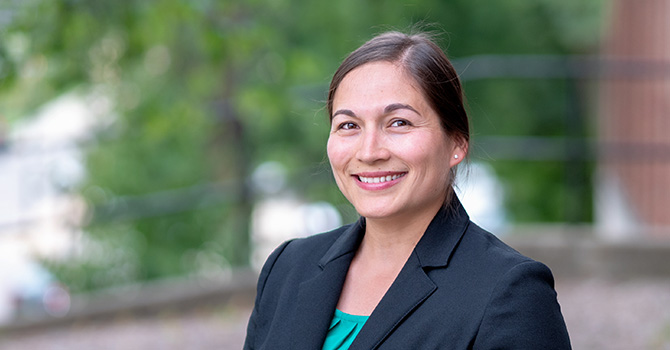Finding New Passions in Public Health Outside the Classroom

Dany Zemmel, MPH '20
Food is such a critical driver of many types of health in our lives. It has the power not only to nourish us but to connect us. I believe our physical, mental, and social health would improve if we had stronger relationships with food—if people knew more about what they're eating, where it's coming from, and where they can access it.
I realize that my ability to change the foods I consume is based largely on what I can access and what I can afford, which are both rooted in privilege.
Over the past few years, I've been learning more about the food I eat and using that knowledge to inform my consumer choices. I realize that my ability to change the foods I consume is based largely on what I can access and what I can afford, which are both rooted in privilege. Working to improve access to more nutritional sources of food for vulnerable populations is one way I can help work toward achieving health equity, even in a small way.
Improving access to healthy food has been a focus of my work here at the University of Michigan School of Public Health. I've also found opportunities to enrich my passion outside of the classroom through the Dow Sustainability Fellowship.
As a Dow Sustainability Masters Fellow, I've been able to contribute to local food access in a meaningful way. My project partner and current epidemiology student Brooke Callaghan and I have worked to establish the Maize and Blue Cupboard (MBC) Donation Garden, which provides produce to the university's food pantry, the Maize and Blue Cupboard. The MBC Donation Garden also encourages engagement in community gardening and local food systems. The food is grown by students and is for students which is an exciting concept.
Providing fresh, locally-grown produce to Michigan's Maize and Blue Cupboard can make a big impact on campus. We can better serve food-insecure students by providing produce that is affordable and convenient to access. We can also increase engagement in local community gardening efforts and raising awareness of food insecurity, particularly among Michigan students.
My role with the MBC Donation Garden centers on planning and evaluating garden-related programming. My team coordinates with partners and plans events to engage students through gardening and cooking. We hosted two community workdays at the garden over the summer. Additionally, we hosted two cooking classes this fall to educate students on basic nutrition and sustainable food systems information, to demonstrate how to incorporate local produce into their diet, and to help strengthen their cooking skills and confidence.
Working with multiple stakeholders to assess an issue, designing and implementing a plan of action, and evaluating and making improvements have helped me more fully understand the complexities of real community-based work.
Food access isn’t directly related to my concentration, but what I've learned through this process has served me in my work study job and will serve me in the future, professionally and personally. Working with multiple stakeholders to assess an issue, designing and implementing a plan of action, and evaluating and making improvements have helped me more fully understand the complexities of real community-based work. These are key skills I can bring to any type of public health work.
After graduation, I’d like to continue working toward achieving health equity, perhaps through public health workforce development or environmental justice work. I hope to foster cross-sector partnerships, like the MBC Donation Garden project, to ensure environmental and human health are protected.
Dany Zemmel earned an MPH from the University of Michigan School of Public Health in Occupational and Environmental Epidemiology and was a Dow Sustainability Masters Fellow.
- Interested in public health? Learn more here.
- Learn more about the Occupational and Environmental Epidemiology program.
- Read more stories about Environmental Health Sciences alumni, faculty, and students.
- Support research and engaged learning at the School of Public Health.
